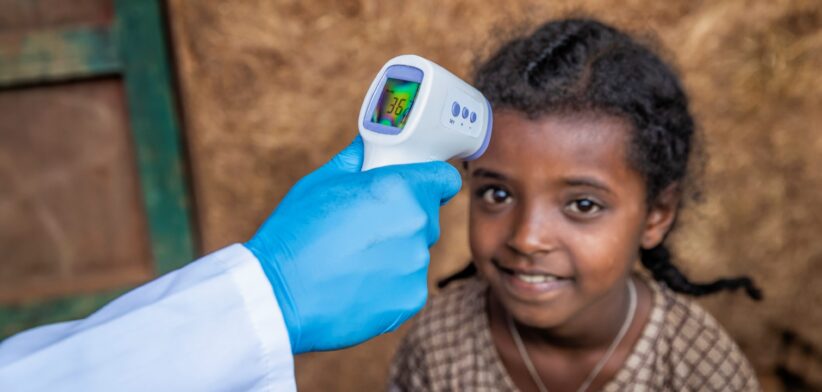A new global dashboard is tracking the critical factors impacting the health of the world’s children.
The dashboard, launched by the World Health Organisation (WHO), contains data from 196 countries and territories around the world.
WHO said the platform would shed light on issues ranging from childhood survival to educational attainment and exposure to violence.
“(The) dashboard will help policymakers, the health community and the public track progress on some of the critical factors influencing children’s health and their futures,” the organisation said in a statement.
WHO said currently 4.9 million children aged under 5 years died every year, with nearly half of these babies in their very first month of life.
It said, based on current trends, 59 countries would miss the United Nations’ Sustainable Development Goal target for under-five deaths.
The Child Health and Well-being Dashboard aims to capture progress against several core indicators, grouped within four key domains:
- Survival indicators tracking mortality through infancy, childhood and adolescence.
- Developmental indicators tracking breastfeeding rates in infancy, early years of physical and emotional development, and learning outcomes at school.
- Protection indicators tracking exposure to violence and child labour, maternity protections, and prevention of inappropriate marketing of formula milk products.
- Participation indicators tracking appropriate care-seeking behaviour (e.g. parents seeking medical attention when their child has a high fever), birth registration, and school attendance and completion.
- Supporting contextual and policy indicators tracking poverty levels and food security, as well as environmental factors like sanitation, emissions and pollution.
WHO said in addition to country-specific data, the dashboard would enable global analysis of factors that influenced children’s health, and identify areas that needed attention within international forums and policies.
“For instance, of 196 countries, the indicator that the largest number of countries (144) are struggling with is maternity protections, which are essential for supporting the mental and physical health of women and babies during pregnancy and after birth,” it said.








